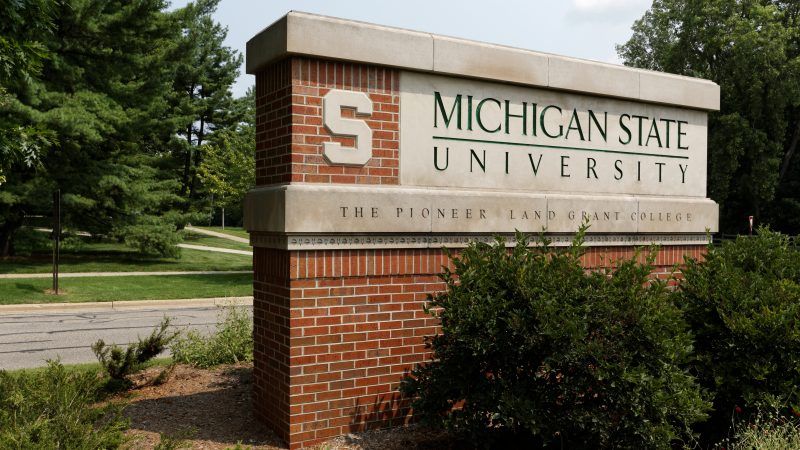Lawsuit Seeks Class Action Status for Students Whose Due Process Rights Were Violated During Title IX Investigations
The lawsuit alleges that MSU has denied due process rights to student defendants in order to placate critics of its sexual assault policies.

An amended class-action lawsuit filed by a former student against Michigan State University (MSU) could pave the way for more class actions against universities and colleges that violate the due process rights of students accused of sexual misconduct.
Filed by former MSU student "John Doe," the lawsuit claims Doe was "denied equal protection under the law as well as the most fundamental guarantees of due process," when MSU suspended him for two years without giving him a hearing or the opportunity to cross-examine the female student who accused him of sexual assault.
Doe seeks to prove that MSU denied him his rights in order to placate the Department of Education's Office of Civil Rights, which threatened to withhold funding from the university due to its handling of sexual assault cases, and in order to defuse criticism over "a widely publicized report alleging extraordinarily high levels of unredressed sexual assaults against female undergraduates at Michigan State." The suit also says MSU denied Doe his rights in part to due to criticism of the university's employment of Dr. Larry Nassar, the USA Gymnastics physician accused of molesting 250 female children.
Doe filed suit in the United States District Court for the Western District of Michigan, which is in the Sixth Circuit. A 2018 decision by the Court of Appeals for the Sixth Circuit stated that if a student is accused of misconduct, the university must hold a hearing before taking disciplinary action. If the university's decision is based on the credibility of the accuser or witnesses, the defendant must also be allowed to cross-examine the witnesses and the accuser. "Not only does cross-examination allow the accused to identify inconsistencies in the other side's story, but it also gives the fact-finder an opportunity to assess a witness' demeanor and determine who can be trusted," the court said.
Andrew Miltenberg, the lawyer representing Doe who specializes in Title IX cases, said that they are not seeking money, "but to vacate and expunge disciplinary records for anyone that was put on probation, expelled, or any other type of suspension at Michigan State under the same policy of not being able to question the accuser." Miltenberg suggested there could potentially be 200 affected students who might benefit from Doe's case.
The class-action aspect of this case differentiates it from similar cases. Miltenberg says that no one has seen a class action for cases like this because they are generally reserved for consumer issues. "It's not so easy to do a class action because traditionally consumer issues lend themselves to a class action, like breast implant litigation and tobacco litigation." He said if this case is successful, it could open the door for other students in Michigan, Ohio, Kentucky, and Tennessee to sue, as those states are in the jurisdiction of the Sixth Circuit.
"Practically any university in those four states would be subject to the Doe v. Baum ruling. If their policy didn't allow for a live hearing and the ability to confront a witness, you could go to any school and raise this same issue," Miltenberg says. "The hope is that other circuits take note of this and say 'Hey this makes sense, this is right.' I think in that case, it would spread to those other jurisdictions."
Miltenberg explained that the next step in the case is for MSU to respond to Doe's lawsuit, which it has 14 days to do. There is a court conference in September to get the case certified as a class action—although Miltenberg says ideally it would get certified sooner.
"What I hope, more than money or financial damages, is that we stop any erosion of due process," Miltenberg says. "Because it is a very slippery slope."
The Detroit Free Press reports that Miltenberg and his team are looking into cases dating back to 2011, "when the then-Obama administration sent a 'Dear Colleague' letter to universities upping the pressure to run sex assault investigations and spelling out what needed to be done."
As Robby Soave notes, the letter "lowered the burden of proof to a 'preponderance of the evidence' standard, which meant that accused students could be found responsible for sexual misconduct if administrators were only 51 percent convinced of the charges," and "it discouraged allowing the accused and accuser to cross-examine each other."
In 2017 Education Secretary Betsy DeVos withdrew the "Dear Colleague" letter policy saying that "these documents have led to the deprivation of rights for many students—both accused students denied fair process and victims denied an adequate resolution of their complaints."


Show Comments (13)